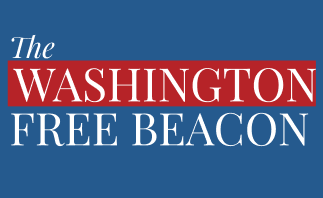The Ivy League school appears to be withholding information from federal lawmakers as a result of CAIR’s suit
The Council on American Islamic Relations is seeking to block Columbia University from turning over records to Congress this week related to the pro-Hamas group Students for Justice in Palestine’s activities on campus, court filings reviewed by the Washington Free Beacon show.
The Senate Committee on Health, Education, Labor and Pensions (HELP) asked Columbia to produce records related to SJP’s activities, finances, potential links to terrorist groups, and overall “threats to campus safety” by Wednesday. CAIR, which is suing Columbia’s board of trustees on behalf of detained protest leader Mahmoud Khalil and several other foreign anti-Israel students, objected to the request.
Releasing the documents, attorneys with CAIR’s legal defense fund argued, could implicate Khalil and his classmates. They asked a federal judge in New York to implement a 30-day review period, during which CAIR could assess the documents and file objections. The judge, Arun Subramanian, responded by ordering Columbia to delay the release of the documents until Friday for CAIR’s review, according to court filings.
The ordeal comes as Columbia attempts to restore hundreds of millions of dollars in federal funds frozen by the Trump administration. To do so, it must placate federal regulators and lawmakers with policy changes meant to quell anti-Semitism on its campus. Many Columbia faculty members and students, however, object to those changes—as do anti-Israel activists groups like CAIR, which is working to stop Columbia from cooperating with the federal government.
CAIR sued Columbia on behalf of Khalil and seven other Columbia and Barnard College students on Mar. 14, saying the school’s “decision to cooperate with this political witch hunt puts hundreds of students in danger of government retaliation, doxxing, and harassment.”
The original lawsuit cited a February records request from a different body, the House Committee on Education and the Work Force, which requested disciplinary records related to the “takeover and occupation” of Hamilton Hall, as well as other illegal demonstrations. CAIR argued that the records would “be weaponized against students who dare to speak out against Palestine.”
Earlier this month, CAIR’s attorneys secured a favorable order from Subramanian. It gives them 30 days to review documents Columbia intends to release to Congress that include “student records”—the same order CAIR attempted to invoke in the case of the HELP committee’s request.
Columbia has indicated that it will withhold such records from federal lawmakers as a result of that order.
The school argued in a Tuesday court filing that while it does intend to submit SJP-related records to the HELP committee, those records would not be subject to the 30-day review period because they do not “include any student records.” The committee requested “all records in the university’s possession related to SJP and its on-campus activities,” including those that pertain to specific students.
“Columbia is carefully tailoring its upcoming response to the Senate HELP Committee’s request in a manner that complies with the court’s April 4, 2025 order by ensuring that the response neither includes any student records nor furnishes any students’ identities in records already produced,” the university wrote in the filing.
“In fact, in connection with the response, Columbia will be affirmatively alerting the HELP Committee—which is not a party to this litigation—to the existence and content of the court’s order.”
Even with that assurance, CAIR will have at least 24 hours to review the records Columbia intends to submit to the committee. The back-and-forth suggests CAIR’s lawsuit on behalf of Khalil will have broad implications, potentially hindering congressional investigations into anti-Semitism and pro-Hamas groups at Columbia.
CAIR’s attempt to quash the release, meanwhile, comes as the Columbia SJP—which was suspended from campus in November 2023 yet continues to organize unruly protests through a coalition of student groups called Columbia University Apartheid Divest—faces legal action over its support for Hamas.
Last month, families of Oct. 7 victims filed a lawsuit against Columbia SJP, accusing it of aiding and abetting Hamas. Khalil, a leading organizer of the anti-Israel demonstrations at Columbia, is also a defendant in that lawsuit.

















